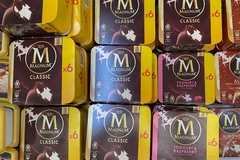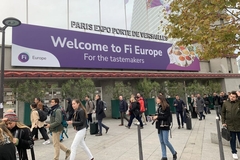
- Industry news
Industry news
- Category news
Category news
- Reports
- Key trends
- Multimedia
- Journal
- Events
- Suppliers
- Home
- Industry news
Industry news
- Category news
Category news
- Reports
- Key trends
- Multimedia
- Events
- Suppliers
FSA Updates on Dioxin Contamination of Pasteurized Liquid Eggs

Pasteurized liquid egg is commonly used by caterers and food manufacturers and is usually bought in bulk in a variety of packages including tanks, paper cartons and hermetically sealed polythene bags.

1/10/2011 --- The Food Standards Agency is providing further information about the distribution of pasteurized liquid whole egg to the UK from the Netherlands that may have been made with eggs contaminated with dioxins.
The pasteurized liquid whole egg (that is including the white and yolk) was produced using eggs from Germany that could contain levels of dioxins that are above the legal limits. These eggs were subsequently mixed with non-contaminated eggs to produce pasteurized liquid egg, an ingredient used widely by the food industry when producing larger amounts of products such as cakes. Pasteurized liquid egg is commonly used by caterers and food manufacturers and is usually bought in bulk in a variety of packages including tanks, paper cartons and hermetically sealed polythene bags. These products can include liquid egg whites, liquid egg yolks, or various blends of the whites and yolks.
This pasteurized liquid egg has been supplied to two manufacturers in the UK. These are:
• Kensey Foods, Cornwall – a division of Samworth Brothers
• Memory Lane Cakes Ltd, Cardiff – a division of Finsbury Food Group
These manufacturers used the pasteurized liquid egg to produce a range of short shelf life cakes and quiches, which were supplied to the major UK supermarkets.
There is no food safety risk from eating these products. The majority of products will have been sold and most have passed their ‘use by’ or ‘best before’ dates. In light of this information some supermarkets are choosing to voluntarily remove the small amount of products that are still in date.
Dioxins and polychlorinated biphenyls (PCBs) are chemicals that get into our food from the environment. They have no immediate effect on our health but can cause problems if they are absorbed into our bodies at high levels for long periods.
Foods high in animal fat, such as milk, meat, fish and eggs (and foods produced with them) are the main source of dioxins and PCBs although all foods contains at least low levels of these chemicals. The levels of dioxins and PCBs in any one individual's diet will vary depending on the amounts and types of foods they eat.
The risk to health comes from eating food with high levels of dioxins and PCBs over a long period. They have been shown to cause a wide range of effects in certain animals, including cancer and damage to the immune and reproductive systems, although it appears that people may be less sensitive.










